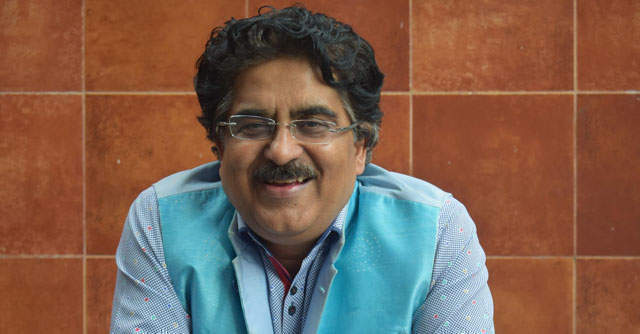
ValueFirst CEO on how the acquisition by Twilio will fast-track growth

Last week, NYSE-listed cloud communications platform service provider Twilio acquired Delhi based enterprise communication platform ValueFirst, creating exits for all of its investors including global venture capital firm New Enterprise Associates (NEA) which first bet on the company in 2008.
Founded in 2003 by Vishwadeep Bajaj and Gagan Chadha, ValueFirst Digital Media offers digital businesses and enterprises SMS services, chatbots, cloud telephony, email automation and other customer engagement tools. Some of its clients include QSR chain Domino’s Pizza, logistics company Shadowfax, and consumer goods company Procter & Gamble.
The acquisition marks Twilio's entry into the India market, although it set up a research and development centre in Bengaluru a year ago.
In an interview with TechCircle, Vishwadeep Bajaj, CEO of ValueFirst, spoke about what the acquisition means for Twilio and ValueFirst’s outlay for the coming financial year.
Edited excerpts:
What kind of business will you bring in for Twilio?
For Twilio, India is a very important market. It is a sizeable business and several of Twilio’s clients in US have customers in India. What we bring to Twilio is the local knowledge of how to conduct business in India with regulatory compliances – as our business is regulated by TRAI. Also, we have more than 2,500 customers already and we will give them a ready market to scale.
Could you tell us more about the investor exits?
Twilio has acquired 100% of the company. Our current investors have exited completely. All shareholders have been replaced by Twilio, including promoter’s shares. However, I cannot disclose the numbers.
When and how did the acquisition fructify?
ValueFirst and Twilio have been in a great relationship as we have been serving Twilio’s customers with consumers in India for nearly seven to eight years. We also figured out that we as companies are similar in terms of customers, people values, cultural values and so on.
When Twilio decided to enter the Indian market, they already had the right partner in mind. When conversations started in the second half of last year, we appointed Anand Rathi as the banker from our side and things progressed.
Twilio already has an India operation in Bengaluru and for them neither is India new nor Value First. India operations of Twilio started a year or year and half ago is more of a R&D center. The acquisition is to address the market requirements and ValueFirst is an extension of Twilio’s business in the US.
How will ValueFirst’s branding and business change post the acquisition?
The current management has been mandated to run the business as an independent subsidiary of Twilio. I will continue in the company for the foreseeable future. As CEO I will report to management of Twilio but the rest of the organisational structure remains unchanged.
In terms of branding, we do not intend to change the name of the company. We will retain the ValueFirst brand name but are calling ourselves a Twilio Company.
What has been the overall impact of COVID-19 on ValueFirst’s business in India?
First quarter we de-grew by 20% (during Apr-June) just after lockdown but gradually we will be meeting our numbers which we had forecast for ourselves and revised due to Covid. The company is better off than what it was in FY 2019-20.
Some of our customers were impacted and because of that we got impacted to some extent. For example we service one of the large airlines in the country as customers. We also service one of the largest travel portals. These customers created some negative impact in the initial days.
However, there was a need created for digital transformation and Covid fast tracked that.
How did the pandemic impact negotiations?
Twilio took a very bullish view because they themselves have been experiencing the impact in the US. Their market cap has more than doubled in the last year in the Covid times. They have seen it as an event which will precipitate digital communication companies.
Which sectors and product lines saw growth due to the pandemic?
Some of our product lines, particularly, chatbot integrated with WhatsApp became a hot-selling product in the second half of the year. We saw a significant adoption around communication in Over The Top (OTT) channels (such as WhatsApp).
When people were doing digital transactions during lockdown, that accelerated ecommerce, and we saw a lot of traction because of the behavioral change. Companies evolved into enabling more services for consumers and all of that enabled our email, SMS and WhatsApp business.
The money wallet transactions, as well as online payments created a lot of volume due to contactless delivery during the Covid times. All companies in the space of fintech, healthtech, edutech and ecommerce created a lot of volume for ValueFirst.
Did new sectors make up for the de-growth from travel and airlines customers you serve?
That’s how we recovered our de-growth in first quarter. Our largest sector is ecommerce and second largest is BFSI.
How is your revenue split between large enterprises and SMBs?
In terms of revenue, 70-80% comes from large enterprises. We have marquee names in airlines, banks and ecommerce. Around 20% of our customers are very large, and a large mid-sized base, followed by long tail. Our business is directly linked with the number of transactions we process.
What kind of growth do you foresee for financial year 2021-22?
India market is growing at 25% organically. With Twilio, we would like to fast-track it.

